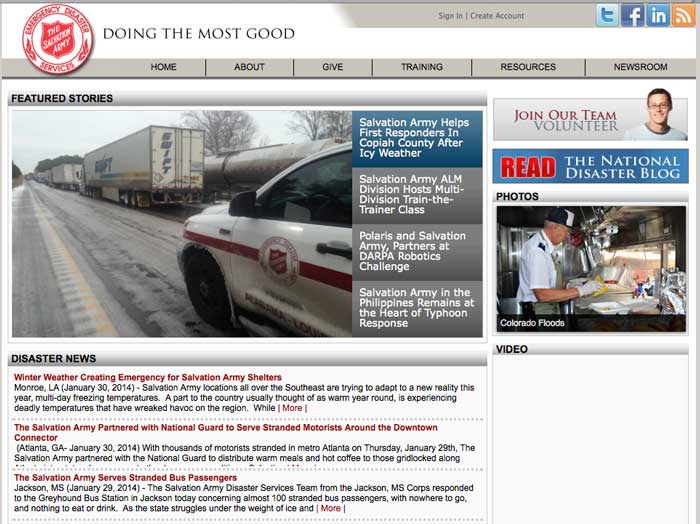DOING THE MOST GOOD
So–what is good?
by Robert Docter –
what is good.
And what does the Lord require of you?
To act justly,
To love mercy,
To walk humbly with your God.
(Micah 6:8)
I love the way Eugene Peterson paraphrases this passage in The Message.
“ … He’s already made it plain how to live, what to do.
What God is looking for in men and women.
It’s quite simple: Do what is fair and just to your neighbor,
be compassionate and loyal in your love,
And don’t take yourself too seriously––take God seriously.”
DOING THE MOST GOOD
What kind of punctuation do you put at the end of this phrase?
An exclamation point!
A period.
A question mark?
Or do you simply leave it open to allow flexibility of meaning?
DOING THE MOST GOOD
Don’t ignore that red shield on the right side. This is a powerful statement this Army intends to project into this world. Choice, you see, is power, and you have many choices in interpreting its meaning. It can be read in so many ways—have so many different meanings attached to it. That’s why I tend to see its punctuation with all of the above, depending on where my mind is at a particular time.
First and foremost, I never visualize this statement without seeing people in it. Sometimes, those “people” are other soldiers at my corps—sometimes it’s Army officers and employees going about their work—sometimes it’s hurting people in need—sometimes it’s a starving baby cuddled by a desperate mom.
If I am focused, then, on the Army acting out its identity as promising in the name of Christ himself a continuing compassionate commitment to other human beings, I see the phrase as articulating the crucial promise of Christian love. We’ll do everything we possibly can to be there with a helping hand when you need us. Anyone—any time—any place.
On the other hand, there are some interpretive approaches I tend to avoid. For instance, if I see the phrase as a descriptor of the Army bragging about itself, it might be seen as a competitive act of pride—“look at us—we’re doing the most good.” Read this way, I don’t see much humility.
I hope this Army continues to avoid “taking itself too seriously”—that it recognizes when its pride begins to overshadow its humility and does something about it. I want us to take our mission seriously—the whole thing.
I want us to take our commitments to the poor seriously. I want us to take seriously our efforts at social redemption because I see Christianity as a religion of interpersonal relationships.
Doing the Most Good could be a statement of challenge to a world to get with it—to examine decisions, behaviors, the problems of humans around the world and be willing to do something about it.
But, you know, when I read it I take it personally. It requires me to take a long, hard look at the quality of my interpersonal relationships with the people in my life—and the people not in my life.
Am I “doing the most good?”
Do I reflect that love in a manner that is genuine?
Am I fair and just in my relationship with them?
Am I perceptive enough to sense their needs?
Am I appropriately giving in all aspects of these relationships?
Am I judgmental?
Whom do I ignore—discount, disenfranchise, diminish?
What about my corps? Is it doing the most good in the community or are we going only half-way some of the time? Am I doing the most good in it?
What about my work—am I doing the most good on my job(s)? Am I carrying my weight – attending to matters in a respectful and professional manner?
How do we know if we’re “doing the most good?”
For me—there’s a voice inside me—sometimes with a tone of disappointment—sometimes with affirmation. Sometimes it’s still and soft—sometimes it’s agitated and loud. I listen—and I know.
Well—as you can see, I like this phrase. It challenges and motivates me. I hope you feel the same way. How about writing me and sharing your thoughts on—
DOING THE MOST GOOD











